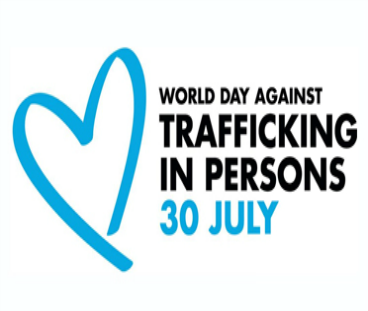Mr. Speaker, I rise in support and as an original cosponsor of H.R. 972, the Trafficking Victims Protection Reauthorization Act of 2005. As the Ranking Member of the Helsinki Commission, let me commend Chairman Chris Smith for all of his hard work on this issue both in the United States and around the world. I also want to thank International Relations Committee Ranking Member Tom Lantos for his strong support.
In 2000 Congress enacted the Trafficking Victims Protection Act (TVRA), which for the first time provided definitive protection for victims of human trafficking. Governments estimate that between 600,000 and 800,000 people are trafficked across international borders every year, yielding approximately $10 billion annually in illegal gains. When considering internal trafficking within a country, this number rises to an estimated 4 million persons.
Human trafficking destroys families and communities across the world. Human trafficking is a modern-day form of slavery, which traps people into forced labor or sexual slavery. Human traffickers violate the most basic human rights of their victims. The international community must oppose human trafficking in all its forms, and work together to eradicate this scourge on humanity. I commend the work of the Organization for Security and Cooperation in Europe (OSCE) for addressing this issue in a comprehensive manner, by creating an Action Plan to combat trafficking and appointing a Special Representative on Combating Trafficking in Human Beings.
The United States also has a problem with human trafficking as a destination country for many trafficking victims, as we heard in a recent Helsinki Commission hearing on domestic trafficking. The State Department believes that more than 14,500 people are trafficked into the U.S. every year, either for forced labor or sexual exploitation and slavery. Traffickers bring these victims–mainly women and children–from all over the globe, including Southeast Asia and the Americas. Traffickers often use criminal gangs to transport their human cargo. I am pleased that the government has created special “T” visas for victims of human trafficking who cooperate with law enforcement officials.
In 2003 Congress adopted the Trafficking Victims Protection Reauthorization Act, which created a new country “watch list” under the supervision of the Department of State. This list has had a measurable effect on the behavior of offending countries. The State Department places the worst offenders on Tier 3 and makes these countries subject to certain economic and trade sanctions by the U.S. The number of Tier 3 countries has dropped from 27 in 2001 to 14 in 2005, so we have made measurable progress in raising awareness on this issue, but more work needs to be done.
This legislation will require USAID and the Department of Defense to include anti-trafficking policies in post-conflict and humanitarian assistance programs. Governments must put in place special measures to combat trafficking in countries that do not have a functioning and effective central government. This bill would enhance U.S. efforts to combat trafficking involving international peacekeepers.
The bill also authorizes $15 million annually for the Secretary of Health and Human Services to carry out a pilot program to establish U.S. residential treatment facilities for minors who are victims of domestic trafficking. The bill also expands counseling programs for victims of severe forms of trafficking. In total, the bill authorizes $68 million annually to combat human trafficking and assist victims.
We must keep the pressure up on other countries that do little to stop human trafficking, by implementing sanctions when needed and by using all available diplomatic channels. United States courts need to prosecute those individuals who commit these crimes on U.S. soil to the full extent of the law, and to send a message that the United States does not and will not tolerate human trafficking. I urge my colleagues to support this bill.







